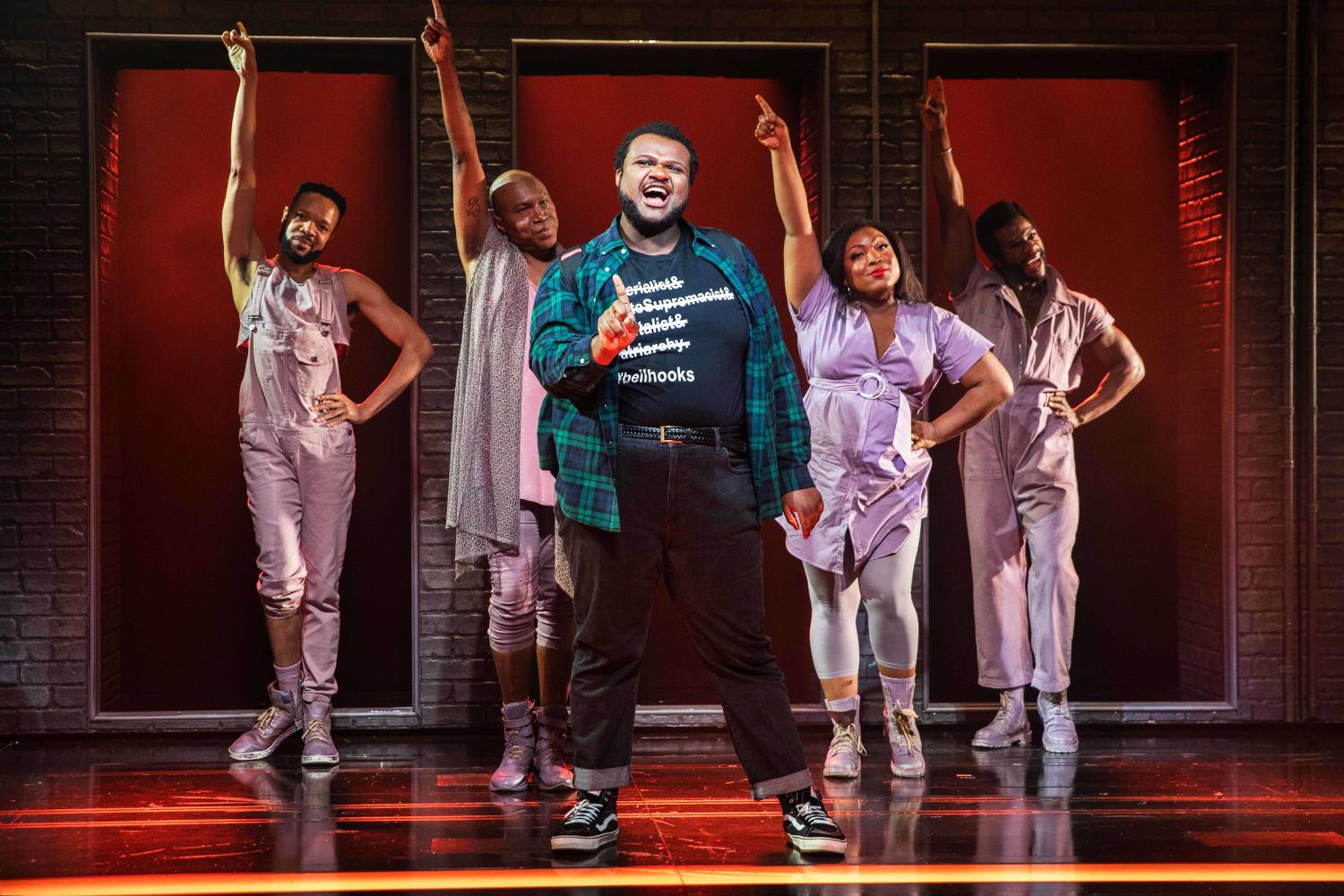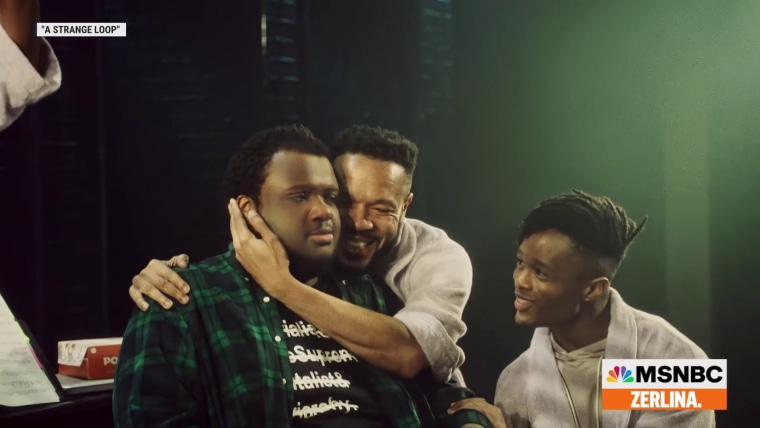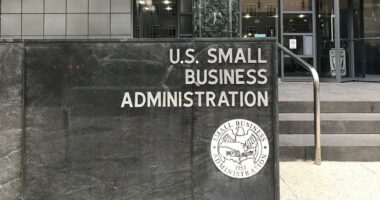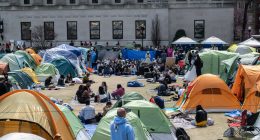The first time I heard “Being gay is a white thing,” I was a 10-year-old Black kid living in Houston. The comment wasn’t directed at me at the time, thank God. But it wasn’t the first time I’d heard anti-gay words, and it wasn’t the last time. Sometimes the words came from inside the walls of my own home as my soon-to-be-absent Christian father made clear his disgust at having a queer son.
It began when I was 6 years old. I was called “punk” by kids barely older than me. They either sensed something about me that I hadn’t yet realized, or they were mimicking words they’d overheard from brothers, fathers, uncles and cousins who had inherited the same way of thinking from previous generations of Black men. These men were anxious to maintain a sense of masculine dignity in a white-dominated world determined to squeeze the life out of them.
Growing up, I didn’t dare dream of seeing people like me on stage. Homosexuality wasn’t something to celebrate. It was something that those afflicted tried to pray away.
Whatever the reason, the slurs flowed like arsenic from their lips and burned my skin like acid. The wounds would heal into scars that dotted my emotional skin like measles.
That’s what makes the public celebration of the musical “A Strange Loop” a personal revelation. Billed as a “big, Black, and queer-ass Great American Musical for all,” it has been nominated for 11 Tony Awards including best musical, best original score, best lead actor in a musical and — in a historic first for transgender representation — L Morgan Lee was nominated for best featured actress in a musical. The Tonys air Sunday on CBS.
Growing up, I didn’t dare dream of seeing people like me on stage. Homosexuality wasn’t something to celebrate. It was something that those afflicted tried to pray away. My mom, a nurse who worked at the hospital where my four siblings and I were born, did her best to raise us. She had the help of my grandmother, but not my father, who had left to form another family with someone else. The stresses of living in a single-parent household became more of a reason to try to suppress who I was. I was the oldest child and wanted to cause as few problems as possible. It felt like there wasn’t much more “disappointment” or any more curveballs the family could withstand.
On Sundays, we went to the same Baptist church that Grandmama, what I called my grandmother, had attended for two decades. Getting a seat in the sanctuary with my family, I’d overheard the older church ladies in their colorful hats whisper about people they suspected of being gay. There were “sissies” and the one organist suspected of “having sugar in his tank.” I knew that wasn’t good. By fifth grade, I was an outsider in my own life, masked and secretive, hiding my growing awareness of my gayness, skeptical of what some Christian folk said about anyone different. But Grandmama, the saving grace of my childhood, insisted, “We treat everybody the same since we’re all God’s children.” All prejudice was wrong, she taught me.
But the words I heard outside of her embrace showed that many people — including those I saw in the grocery store, at church and on my neighborhood block — disagreed.
They claimed that “being gay is a white thing.” That was one of their issues with queer people. The few images of openly gay people in the news bore that out. They were white men who lived miserable lives, and they were often the butt of jokes and ridicule.
I immersed myself in the waters of LGBTQ activism as an adult, hoping that would baptize me into a new world of communal affirmation. Instead of fellowship, I crashed headfirst into a concrete wall of racism. Some of the gay people I met were more wedded to the whiteness of their skin than any idea of queer solidarity. I teetered on a tightrope between Black and gay, where Black was straight and gay was white.
“A Strange Loop,” which won the 2020 Pulitzer Prize for drama, centers on the character Usher who ekes out a living as an usher for “The Lion King” musical while writing a musical about an usher named Usher. He sings, “White girls can do anything, can’t they? Black boys must always obey their mothers,” as he struggles to reconcile his seemingly conflicting identities.
It’s an intoxicating blend of Stephen Sondheim-like melodies, the Black church and queer sex that presents something never seen on the Great White Way. Usher is described in the opening monologue as a “broke-ass, middle class, politically homeless, normie leftist, Black American descendant of slaves who thinks he’s probably a vers bottom but not totally certain of that.”
In one of the most devastating songs in the show, characters dressed as members of a church choir sing over and over, “AIDS is God’s punishment.” Usher’s mother looks on in anguish during the number. Their flowing white robes reminded me of the choir that my mom and grandmother sang in. Their words reminded me of hearing pastors, both Black and white, preach that homosexuality was against the word of God. During the song, I had flashbacks to nightmares I had as a teenager where my being gay led to me dying a gruesome death.
Thank goodness “A Strange Loop” doesn’t end in Usher’s death. Instead, Michael R. Jackson, the show’s creator, blessed Usher with something more. He gave the character the space to be contradictory, loving and searching. It’s something that so many Black LGBTQ folks have been denied as we were pushed into making a binary choice: Are we Black or gay? It seemed there was no acceptance that we were both at the same time.
A lesson — maybe the key one — of “A Strange Loop” is that in a society that is doing its best to grind you into dust, the best thing you can do is to be yourself.
For this little African American boy from Texas who grew up to be a proud Black gay man, “A Strange Loop” and the queer art surrounding it is the representative validation I’ve been afraid to admit I craved. Whether it sweeps the Tonys on Sunday or not, it has marked its place in my personal history. It sets a new touchstone of what Black LGBTQ people can achieve when we free ourselves from trying to fit into societal roles never meant for us.
Source: | This article originally belongs to Nbcnews.com











